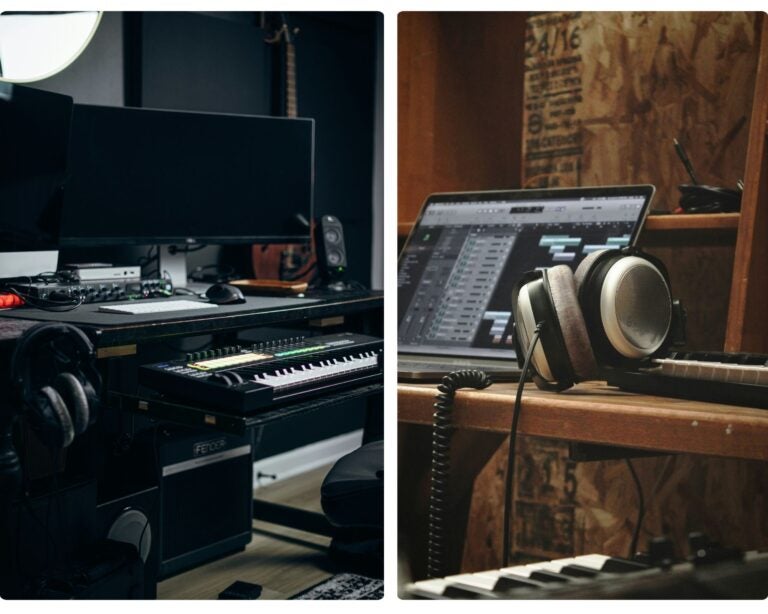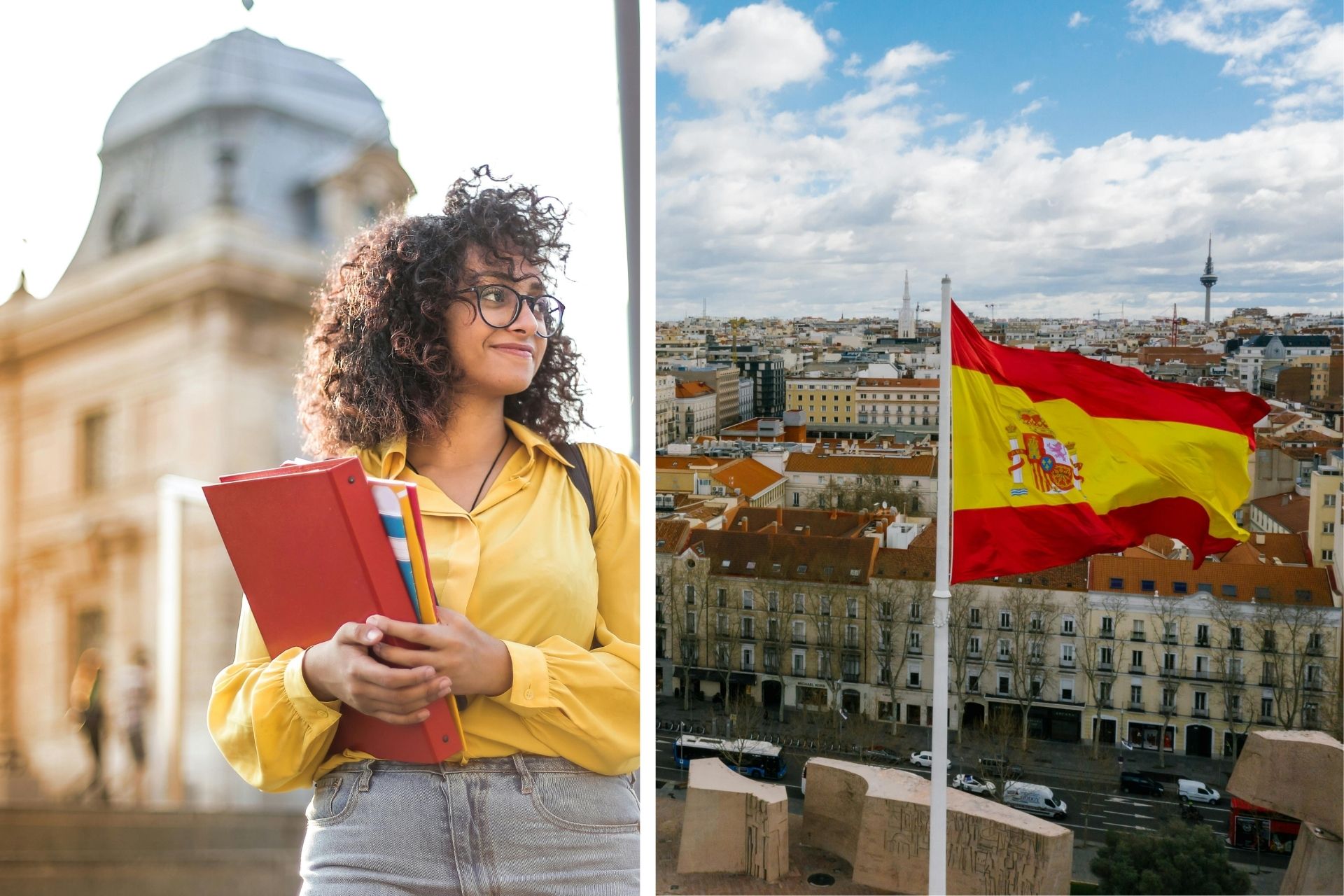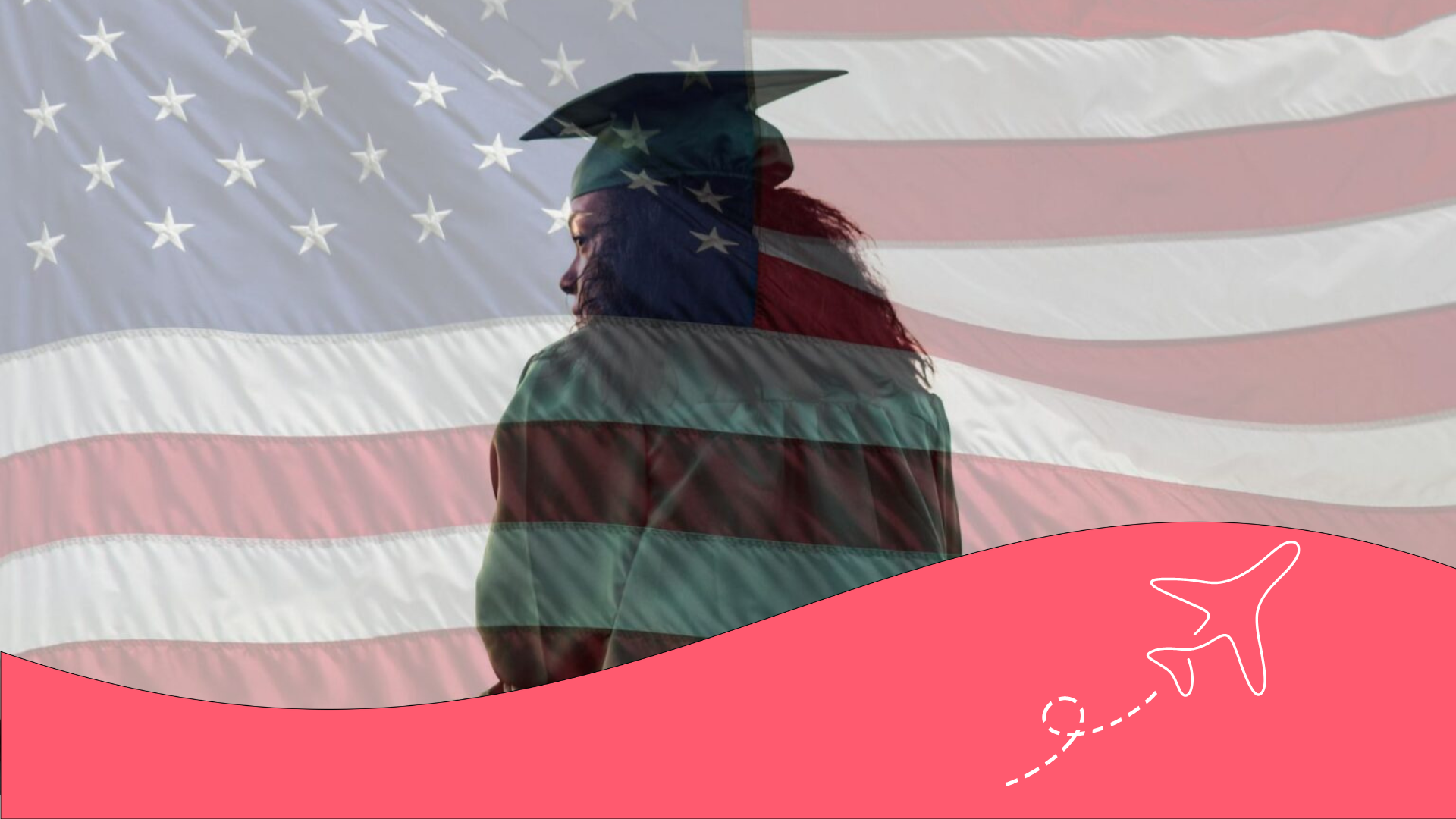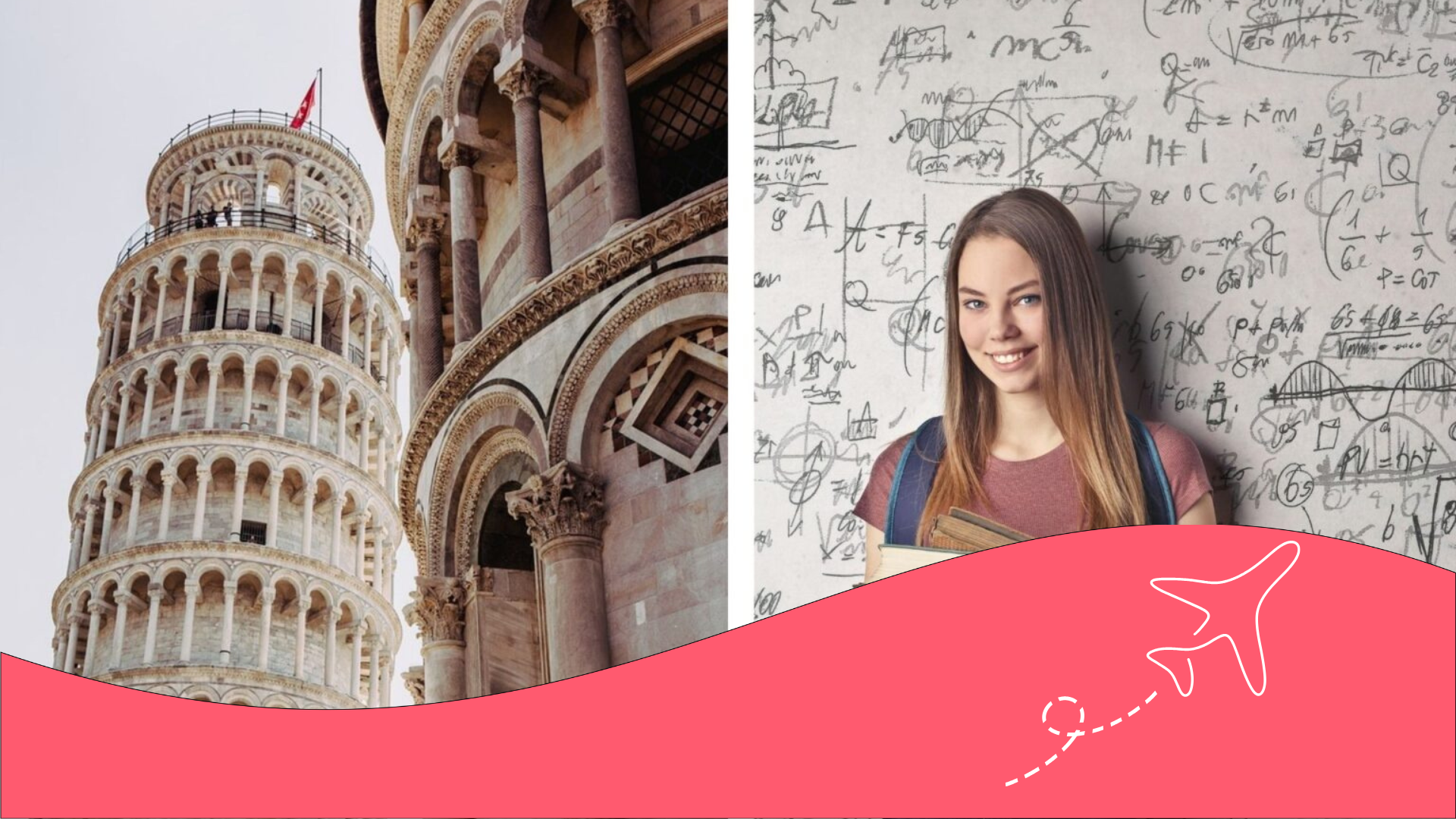Scholarships to study music production abroad
Find in this article a complete and curated list of the best scholarships available to study music production abroad.
Getting scholarships can make it much easier to study music production abroad and achieve your professional goals. Studying in major cities like London, Berlin, Barcelona, or Los Angeles also gives you the chance to meet experienced artists and producers. Here, we’ll explore the best scholarships available for those looking to study music production abroad.
Staying connected is essential while studying abroad, whether for educational collaborations, submitting projects and assignments, or sharing your art on digital platforms. That is why we recommend Holafly’s monthly plans, which offer global coverage so you can stay online while traveling, living abroad, and enjoying the most exciting experiences of your journey. Be sure to choose the plan that best fits your needs.
Alternatively, you can get an eSIM for international travel, giving you unlimited data for as many days as you need, with no roaming charges and no need to swap your SIM card. Simply select your destination and stay connected.
How much does it cost to study music production abroad?
Pursuing music production studies abroad requires a significant investment, but with careful planning and the right choices, it can be well worth it. Expenses differ greatly depending on the country, the institution, and the cost of living in the area.
To give you a general idea:
- United Kingdom (London, Bristol, Manchester): A year at a school or university like BIMM or Point Blank can cost between $15,000 and $23,000 just for tuition. On top of that, expect to spend an additional $10,000 to $15,000 for housing, food, transportation, and other basic living expenses.
- United States (Los Angeles, New York, Boston): If you aim for schools like Berklee College of Music or SAE Institute, annual costs can range from $30,000 to $50,000. Living expenses are also high, especially in major cities.
- Germany (Berlin, Hamburg): The good news is that many public universities charge no tuition, or just a symbolic amount of around $320 to $530 per semester. However, you will need to show that you have enough funds to live there, which is roughly $10,500 per year to cover basic living expenses.
- Netherlands (Amsterdam, Rotterdam): Some comprehensive university programs have annual tuition ranging from $8,500 to $15,500. Living expenses typically range between $9,500 and $13,000 per year.
- Canada (Toronto, Vancouver): Programs at colleges or universities cost between $11,000 and $18,500 per year, plus living expenses of around $9,000 annually.
That’s why scholarships are key, giving you access to top-level institutions.
Important: If you are a frequent traveler and want to stay connected without worrying about expensive roaming or looking for a new SIM at every destination, Holafly’s subscription plans are for you. With a single eSIM, enjoy internet in more than 170 countries for a fixed price and no surprises on your bill. Travel without limits and connect easily and securely! 🚀🌍

The best scholarships for studying music production abroad
1. DAAD Scholarship – Germany
- The DAAD (German Academic Exchange Service) offers fully funded scholarships for international students who want to pursue master’s programs in Germany, including artistic fields such as music production.
- General requirements: Hold an undergraduate degree, have relevant professional or artistic experience, and possess an admission letter from a German university.
- Coverage and benefits: Tuition covered (mostly free in Germany), a monthly stipend of about $1,000, health insurance, and assistance with transportation or airfare.
- Type of studies offered: Master’s degrees in arts, music production, composition, and related areas.
- Aimed at: International students, in most cases under the age of 35, with a strong artistic or professional profile.
- How to apply: Through the official website (daad.de).
- Opening date: Generally in August-September.
- Closing date: Between October and November.

2. Fulbright Scholarships – United States
- A flagship U.S. academic exchange program that offers opportunities in creative and artistic fields, including music production.
- General requirements: University degree, excellent academic performance, English proficiency (TOEFL), artistic or professional experience in the field.
- Coverage and benefits: Tuition, monthly stipend, health insurance, and airfare. Pre-departure orientation is also provided.
- Type of studies offered: Master’s degrees and, in some cases, specializations or academic exchanges.
- Aimed at: Latin American citizens with strong academic and artistic profiles who are committed to social and cultural impact.
- How to apply: Through local Fulbright commissions or foreign.fulbrightonline.org
- Opening date: Varies by country.
- Closing date: Generally between March and May of the year prior to the beginning of studies.
3. Holland Scholarship – Netherlands
- Scholarship from the Dutch government for international students who want to pursue an undergraduate or graduate degree at universities in the Netherlands.
- General requirements: Must be from outside the European Economic Area, such as countries in Latin America, and have been accepted to a participating Dutch university.
- Coverage and benefits: A one-time financial grant of $5,700 for the first year of study.
- Type of studies offered: Bachelor’s and master’s degrees.
- Aimed at: Young talents from non-European countries who show academic and artistic potential.
- How to apply: From the website of the chosen university or at (studyinholland.nl)
- Opening date: October-November.
- Closing date: Between February and May, depending on the university.
4. MEXT Scholarship – Japan
- Fully funded Japanese government scholarships for international students who want to study at universities in Japan, including programs in the arts.
- General requirements: Strong academic record, good health, basic proficiency in English or Japanese, and a well-written statement of purpose.
- Coverage and benefits: Full tuition coverage, a monthly stipend of about $850, round-trip airfare to Japan, and pre-program Japanese language courses.
- Types of studies offered: Undergraduate, master’s, and doctoral degrees.
- Aimed at: Students from all over the world, especially from countries with educational agreements with Japan, such as Mexico, Colombia, Argentina, Peru, etc.
- How to apply: Through the Japanese embassy in your country.
- Opening date: April-May.
- Closing date: June-July.
5. Fundación Carolina Scholarship – Spain
- Scholarships for Latin American students who wish to pursue master’s degrees at Spanish universities, including music and sound production.
- General requirements: Latin American nationality, university degree, clear motivation for chosen studies.
- Coverage and benefits: Partial or full tuition, accommodation in residences, round-trip airfare, and medical insurance.
- Type of studies offered: Master’s degrees and short specialization courses.
- Aimed at: Young Latin American professionals with a solid academic profile.
- How to apply: From (fundacioncarolina.es)
- Opening date: Usually in January.
- Closing date: March or April.
6. UNESCO-Aschberg Scholarship for Emerging Artists – Global
- Financial support from UNESCO for young artists who want to study or do residencies abroad. Perfect for those seeking a more artistic or experimental approach to music production.
- General requirements: Strong artistic portfolio, motivation letter, acceptance letter to a training program or residency.
- Coverage and benefits: Financial support that may include tuition, travel, accommodation, and meals depending on the project.
- Type of studies offered: Courses, residencies, collaborative projects.
- Aimed at: Emerging artists under 35 from around the world.
- How to apply: Via the official UNESCO website or specific calls for applications from partner cultural centers.
- Opening date: Variable.
- Closing date: Variable, depending on the program and country.

Tips for winning scholarships to study music production abroad
Have a portfolio that speaks for you and your sound
In music production, your academic CV only tells part of the story. What will really make your application stand out is your artistic portfolio, whether it is demos, produced tracks, collaborations, remixes, soundtracks, jingles, or experimental works. Showcasing your style, skill, and growth is key. Consider sharing your work on platforms like SoundCloud, Bandcamp, or YouTube to make it easily accessible.
Explain why studying music production outside your country can amplify your talent
Many scholarship committees appreciate it when you can explain why studying in a specific country is crucial for your development. Are you drawn to London because it is a hub for drum and bass? Or interested in Berlin for its techno scene and digital production innovations? Back up your choices with clear reasoning. Supporting your choices with clear reasoning shows that you are truly committed and thoughtful about your path.
Participate in contests or collaborative projects
Winning or even just taking part in music competitions, emerging festivals, or collaborations with other artists highlights your initiative, creativity, and drive, qualities that scholarship committees look for in applicants. And it doesn’t have to be so professional: DIY EPs, emerging bands, independent projects, and self-managed performances also count.
Prepare an honest cover letter that reflects your personality
A statement of purpose does not have to be dull or overly formal. This is your chance to showcase who you are as an artist, share your musical journey, the challenges you have overcome, and the kind of producer you aspire to be. Whether your style draws on Afro-Caribbean rhythms, blends cumbia with synth-pop, or you taught yourself Ableton Live by watching YouTube tutorials, make it personal and engaging.
Don’t underestimate your informal or self-taught experience
In music production, many people learn in unconventional ways, through tutorials, online courses, or trial and error. Do not hide that in your application. Explain how this experience has given you valuable skills such as independence, versatility, curiosity about technology, and the ability to adapt to different styles or digital audio workstations.
Frequently asked questions about scholarships to study music production abroad
Most are designed for master’s degrees or specializations, but there are also options for undergraduate degrees, short courses, residencies, and exchanges.
Yes, especially for artistic programs where your portfolio carries more weight than a formal degree. However, most academic scholarships still require a prior university degree.
Generally, yes. Studying in Europe or the United States usually requires a solid level of English, and some scholarships ask for certifications like TOEFL or IELTS. In countries such as Germany, Japan, or France, certain universities may also expect you to know the local language.
It depends on the scholarship. Some, such as Fulbright, cover everything, while others only cover tuition or provide partial funding. Always check carefully to see what is included.
You can search on sites such as: Scholarship Portal, official embassy and university websites, or international student forums on social media.
Quite a lot. That is why it is crucial to stand out with your portfolio, your story, and your artistic vision. Focus on being authentic and consistent.





 Language
Language 


















 No results found
No results found








